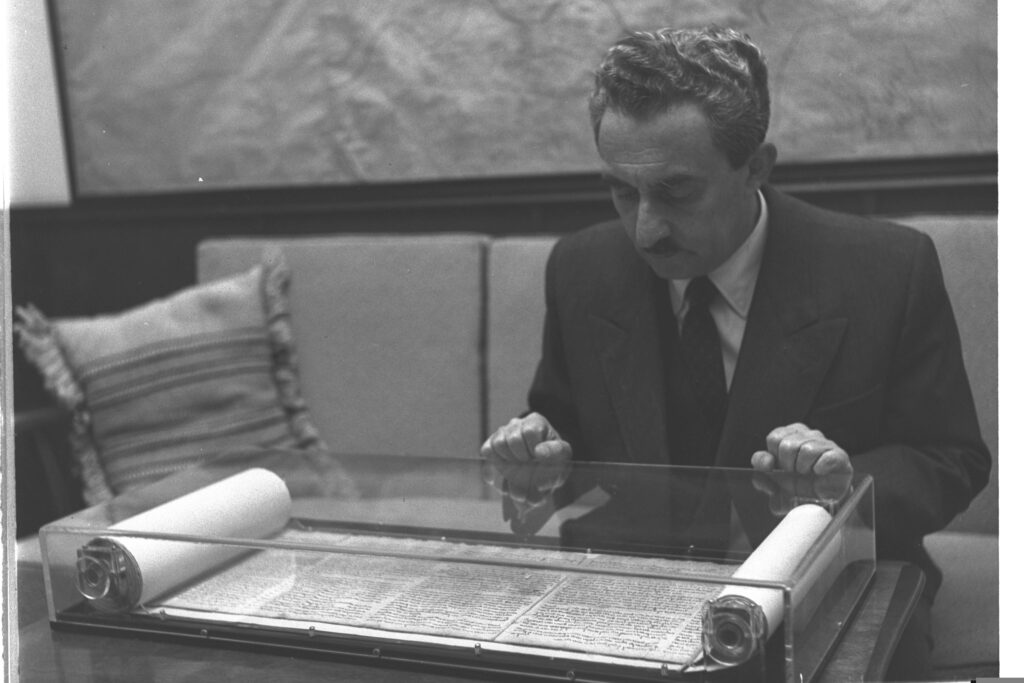February 13, 1955
Prime Minister Moshe Sharett holds a news conference to announce that Israel has acquired four of the first seven Dead Sea Scrolls discovered in a cave at Qumran. Gen. Yigael Yadin and another Hebrew University faculty member have arranged the purchase for $250,000 the previous June in New York from representatives of the Syrian Orthodox Church’s metropolitan in Jerusalem, Mar Samuel. The acquisition of the scrolls bolsters the young state of Israel’s pride and exemplifies Judaism’s deep-rooted history in the land.
The Dead Sea Scrolls are the oldest surviving copies of portions of the Hebrew Bible and serve as a lens into the religious, political and cultural daily lives of those who inhabited the region 2,000 years ago. Sharett says the scrolls will be housed in a facility being built for that purpose, the Shrine of the Book, now part of the Israel Museum in Jerusalem.
Written between the third century B.C.E. and the first century C.E., the first seven scrolls are discovered by Bedouin shepherds of the Ta’amra tribe in 1946. The pieces of parchment are found in clay jars in a cave in the hills on the western edge of the Dead Sea. Excavations of nearby caves the next 11 years find more scrolls and related artifacts.









